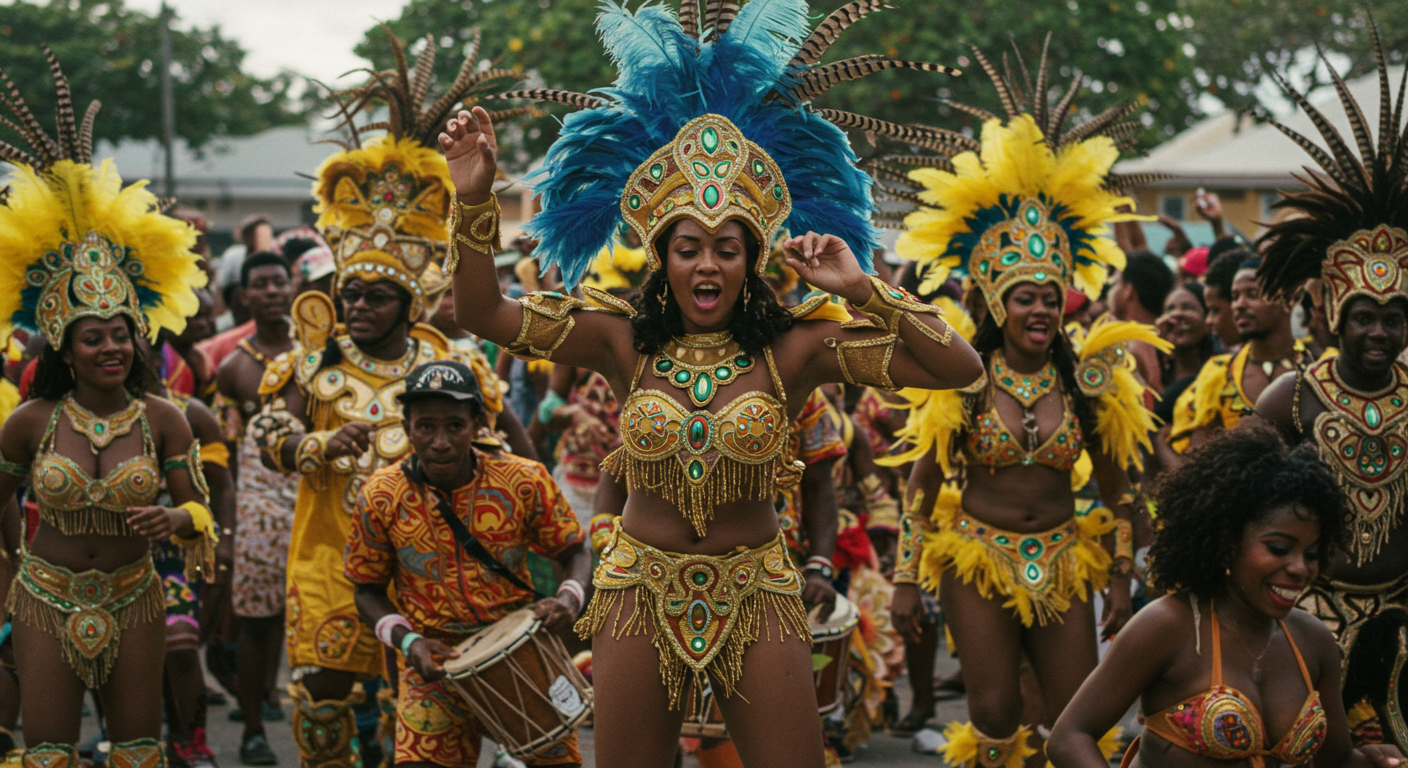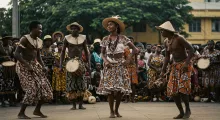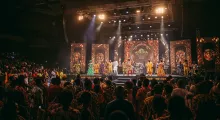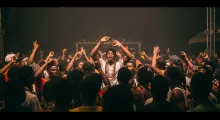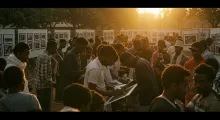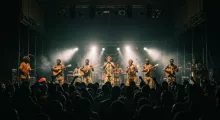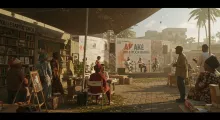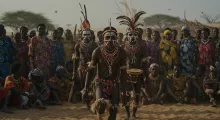Known as “The Greatest Summer Festival,” the Antigua Carnival is a stunning display of Caribbean joy, creativity, and identity—with deep African cultural roots running through every beat, costume, and celebration.
Scheduled for July 24 to August 6, 2025, this 13-day extravaganza transforms the island of Antigua into a living, breathing tapestry of African heritage, colonial resistance, and freedom through festivity.
The Legacy Behind the Celebration
Antigua Carnival originated in 1957 to commemorate the abolition of slavery in the British Caribbean. While similar festivals like Trinidad’s pre-Lenten Carnival dominate the region’s cultural calendar, Antigua’s celebration uniquely occurs in July and August, aligning with Emancipation Day.
As such, Antigua’s Carnival is as much a commemoration of liberation as it is a party. Its African ancestry is alive in the drumming, masquerade characters, spiritual rituals, and even the community structure of carnival troupes.
Major Events and Highlights
Antigua Carnival is broken into both official and unofficial events. Major fixtures include:
Opening Parade (July 26): A colorful procession of dancers, steelpan bands, moko jumbies (stilt walkers), and cultural troupes through the streets of St. John’s.
Caribbean Queen Show (July 28): Pageantry meets performance as young women compete in dance, dress, and intellect, channeling African femininity and pride.
Calypso Monarch Competition (July 30): A fierce lyrical battle where performers address social issues with wit and rhythm.
J’Ouvert Morning Jam (August 4): A sunrise street party where revelers cover themselves in mud, paint, and powder, symbolizing freedom from colonial restraint.
Last Lap Parade (August 6): The grand finale where every troupe and float competes for costume awards and island-wide applause.
Costume Culture & African Symbolism
Costumes during the Carnival reflect a fusion of West African aesthetics, Caribbean flair, and Indigenous designs. From vibrant feathers and beads to cowrie shells and African mask motifs, the visual storytelling is powerful.
Masquerade bands (mas bands) often choose themes rooted in African mythology, resistance, or celebration. You’ll see:
Characters based on Orisha deities like Ogun or Oshun
Costumes inspired by Zulu warriors or Egyptian royalty
Color-coded troupes representing African unity or diasporic pride
Music: From Drums to Soca
The African heartbeat lives in the steelpan, iron bands, and African drumming heard across the festival. But modern Carnival wouldn’t be complete without:
Soca and Calypso music competitions
Sound systems blasting Afro-Caribbean dancehall
Local fusions with Afrobeats and Amapiano
Live acts like Machel Montano, Patrice Roberts, and Antiguan legends like Burning Flames light up the nights.
Food, Market & Culture
From roadside grills to food courts, the Carnival offers Afro-Caribbean delicacies like:
Fungee and pepperpot (Antigua’s national dish)
Saltfish and bakes
Goat water
Afro-Caribbean rum punches and tamarind drinks
Craft markets sell African beads, calabash utensils, traditional drums, paintings, and handmade carnival masks. Storytelling tents and heritage exhibitions share the real history of slavery, resistance, and pride.
Why It’s More Than a Party
Antigua Carnival honors the truth that African traditions survived slavery and thrived in creativity. It is an annual resistance narrative wrapped in joy—where the ancestors are remembered not in silence, but in music, dance, and vibrant self-expression.
It’s also a bridge between Africa and the Caribbean, showing how African identity transformed across oceans and into new worlds.
